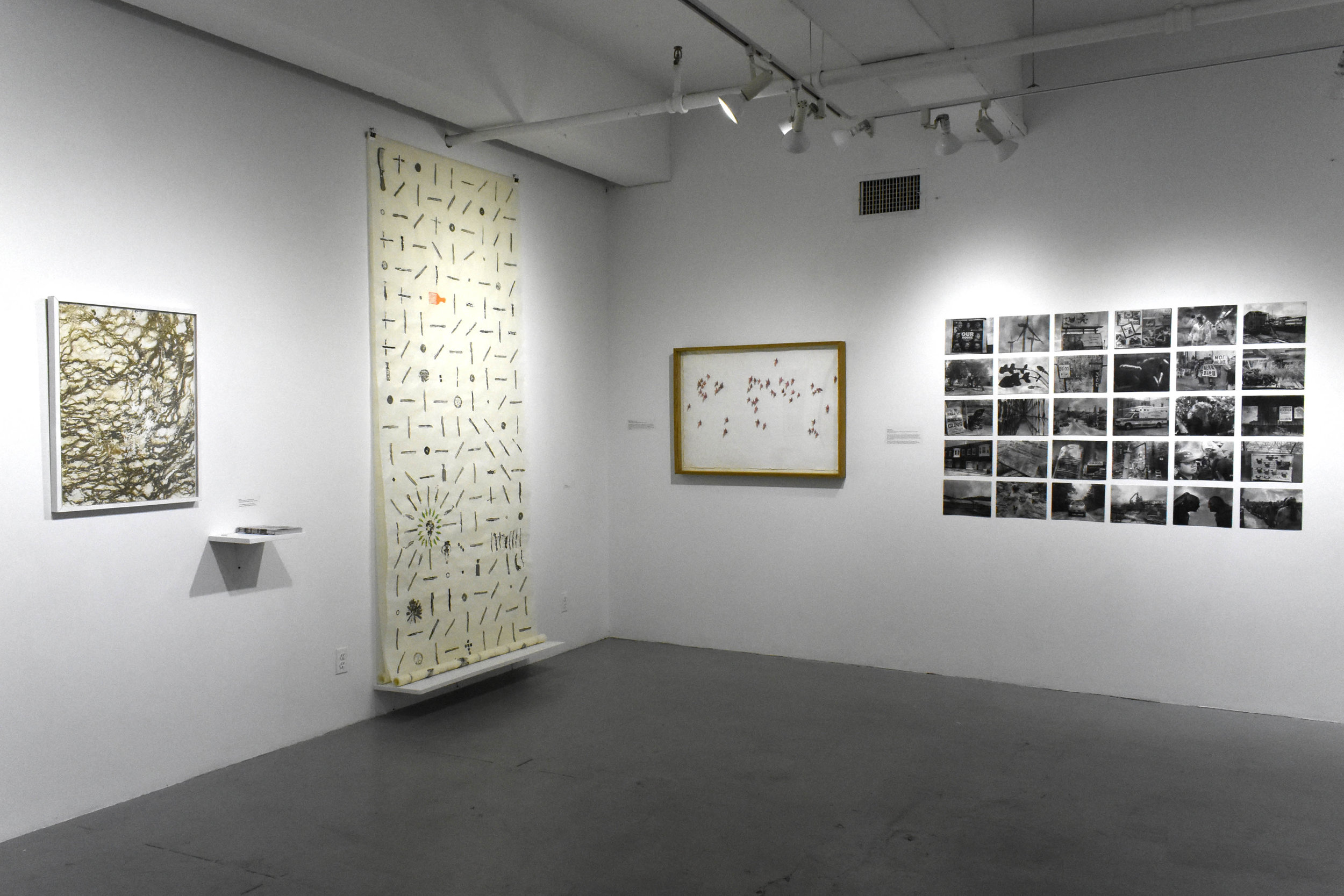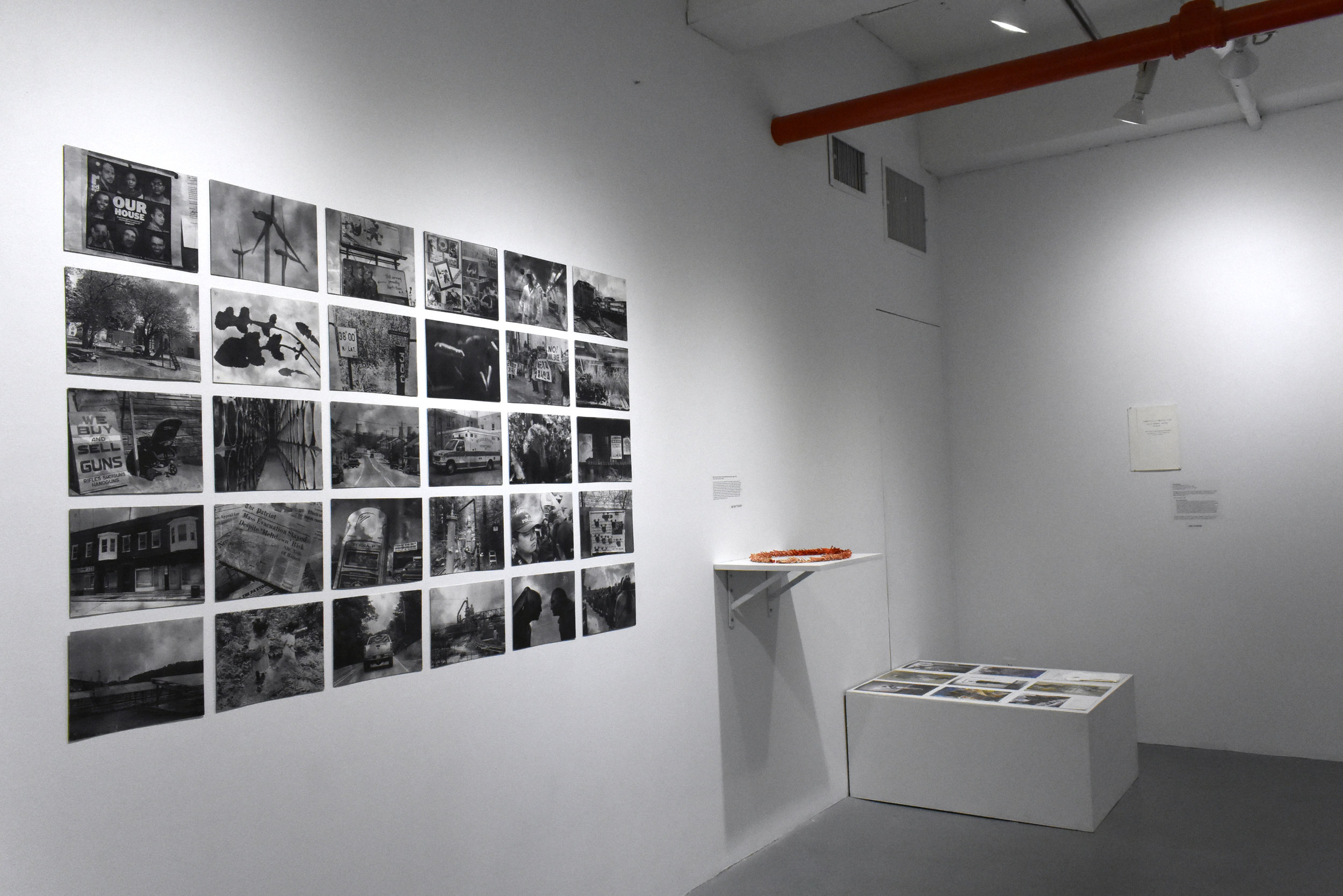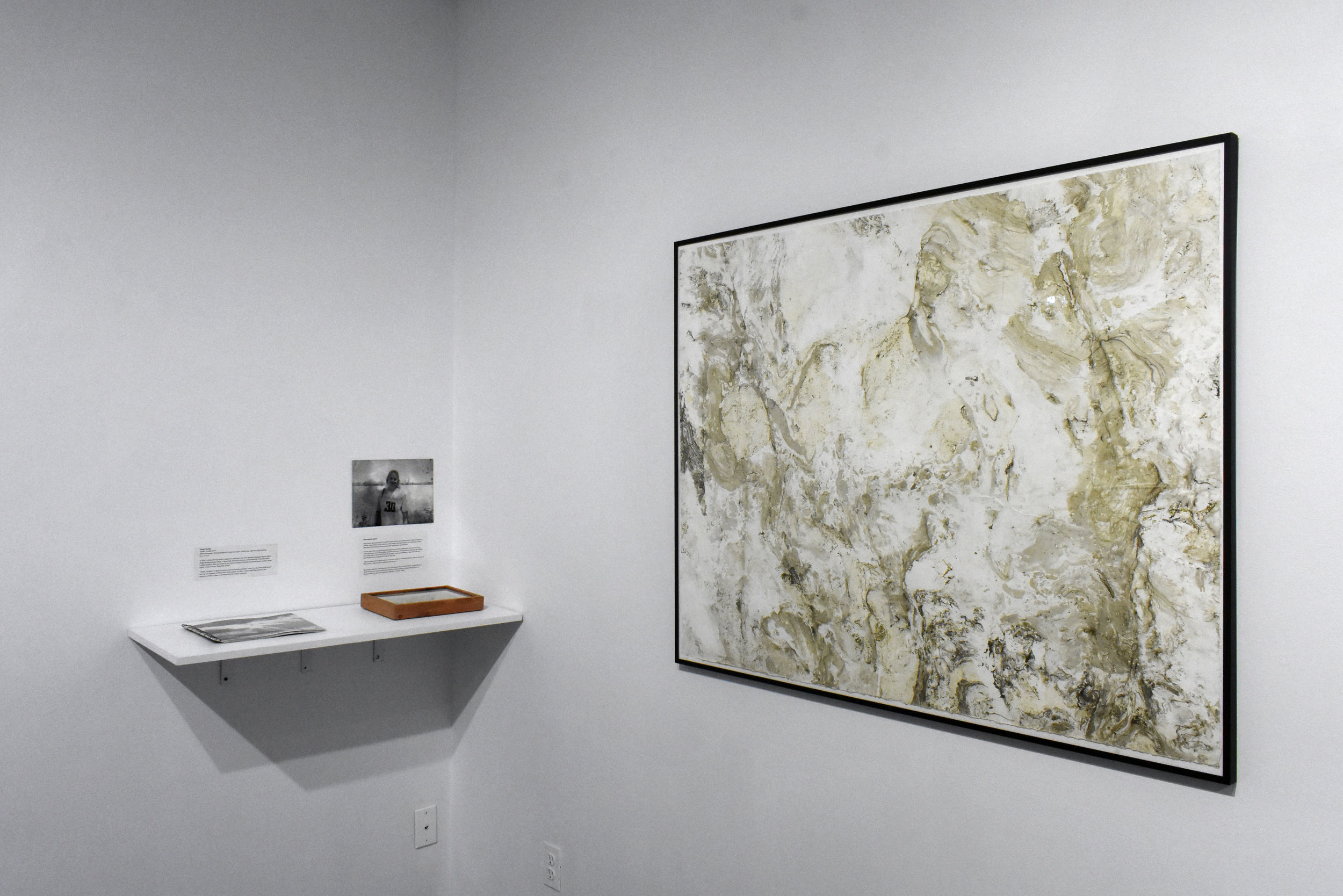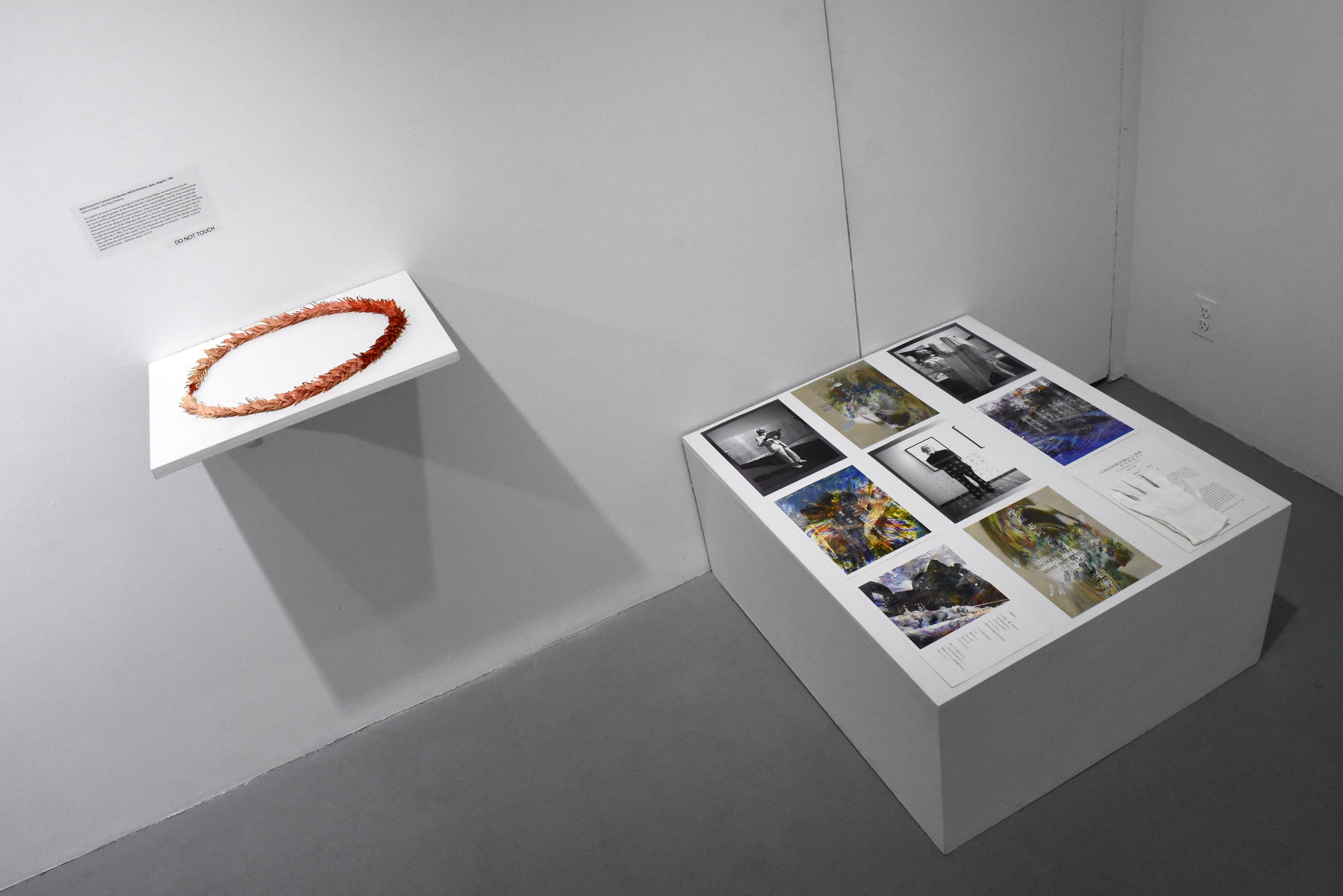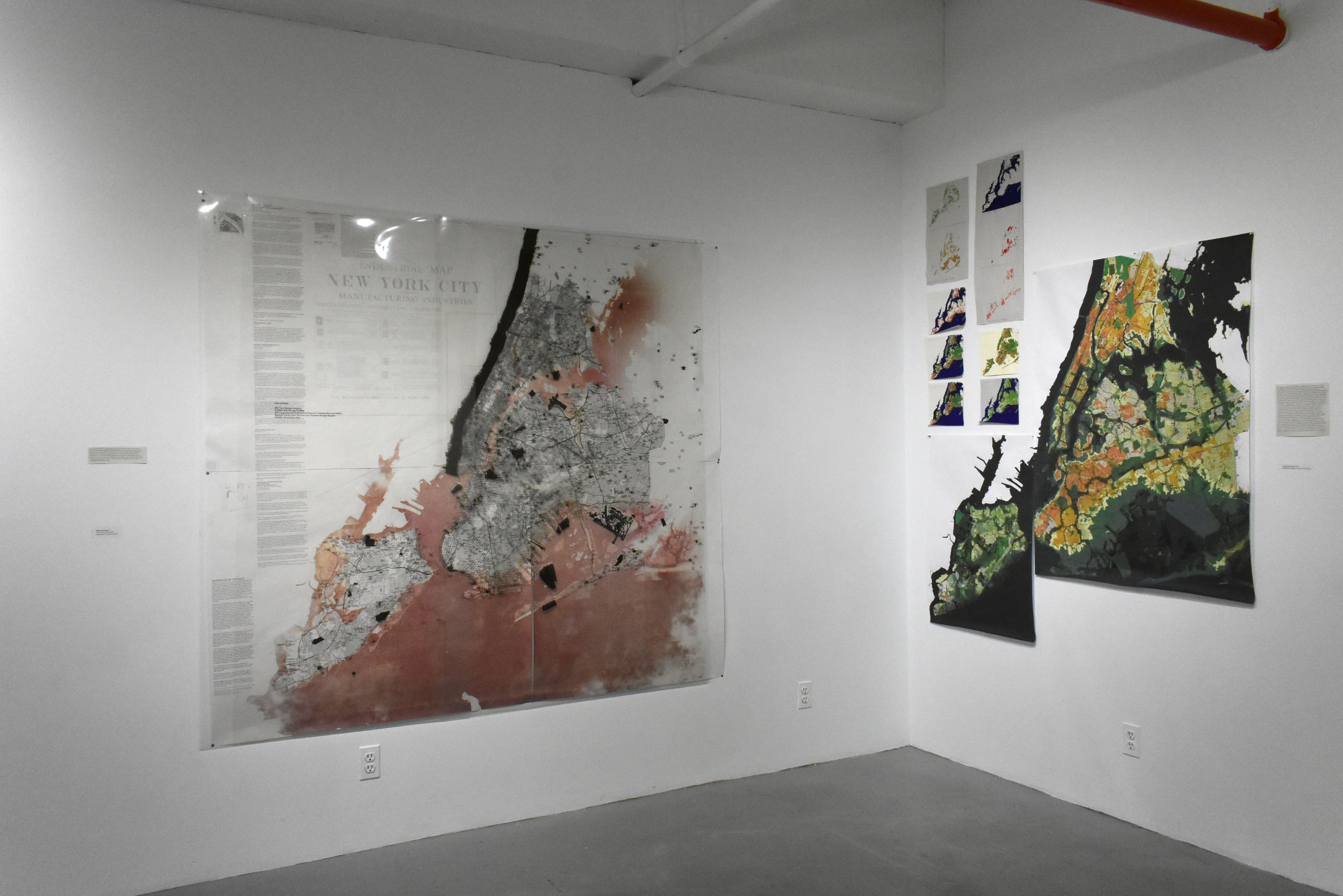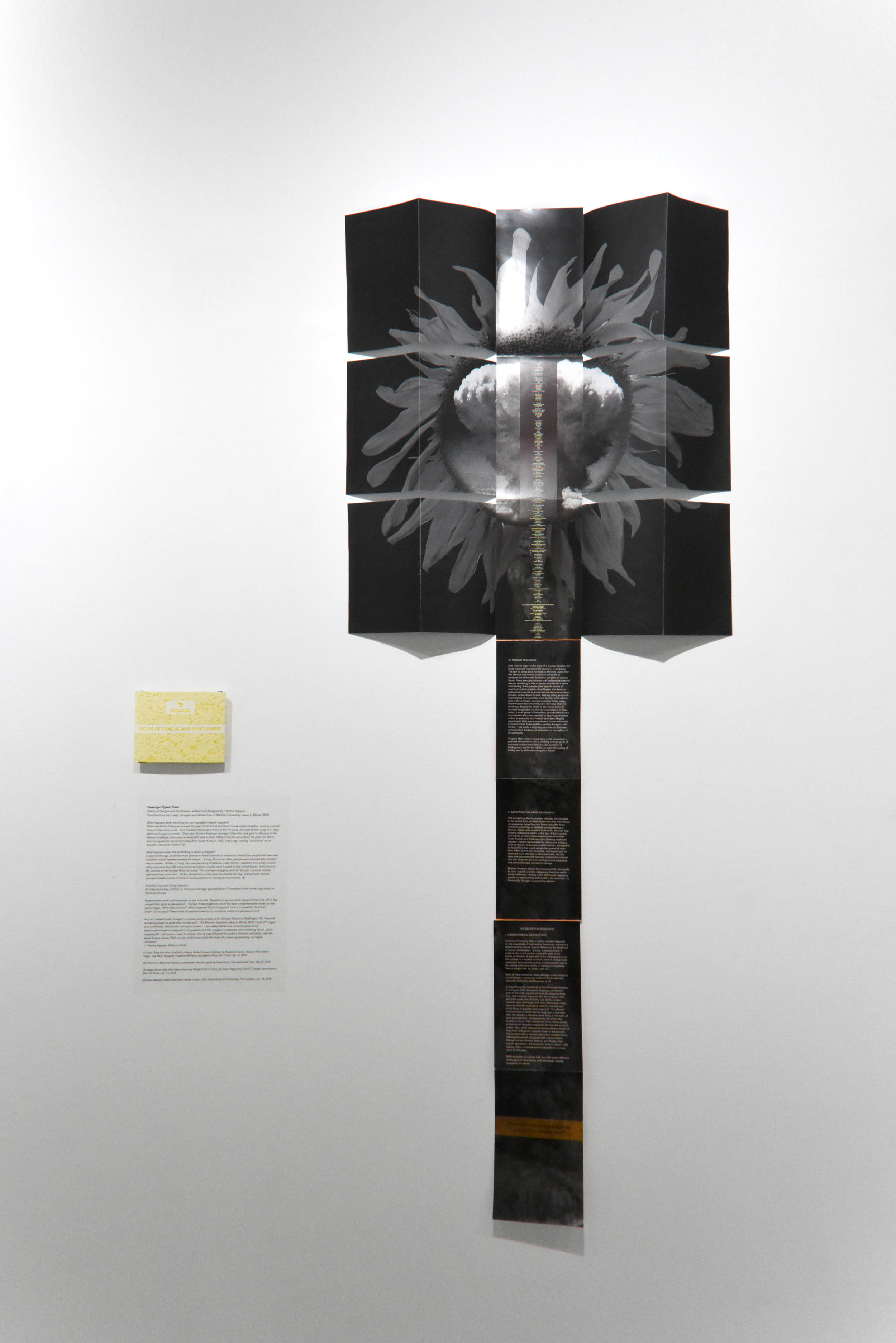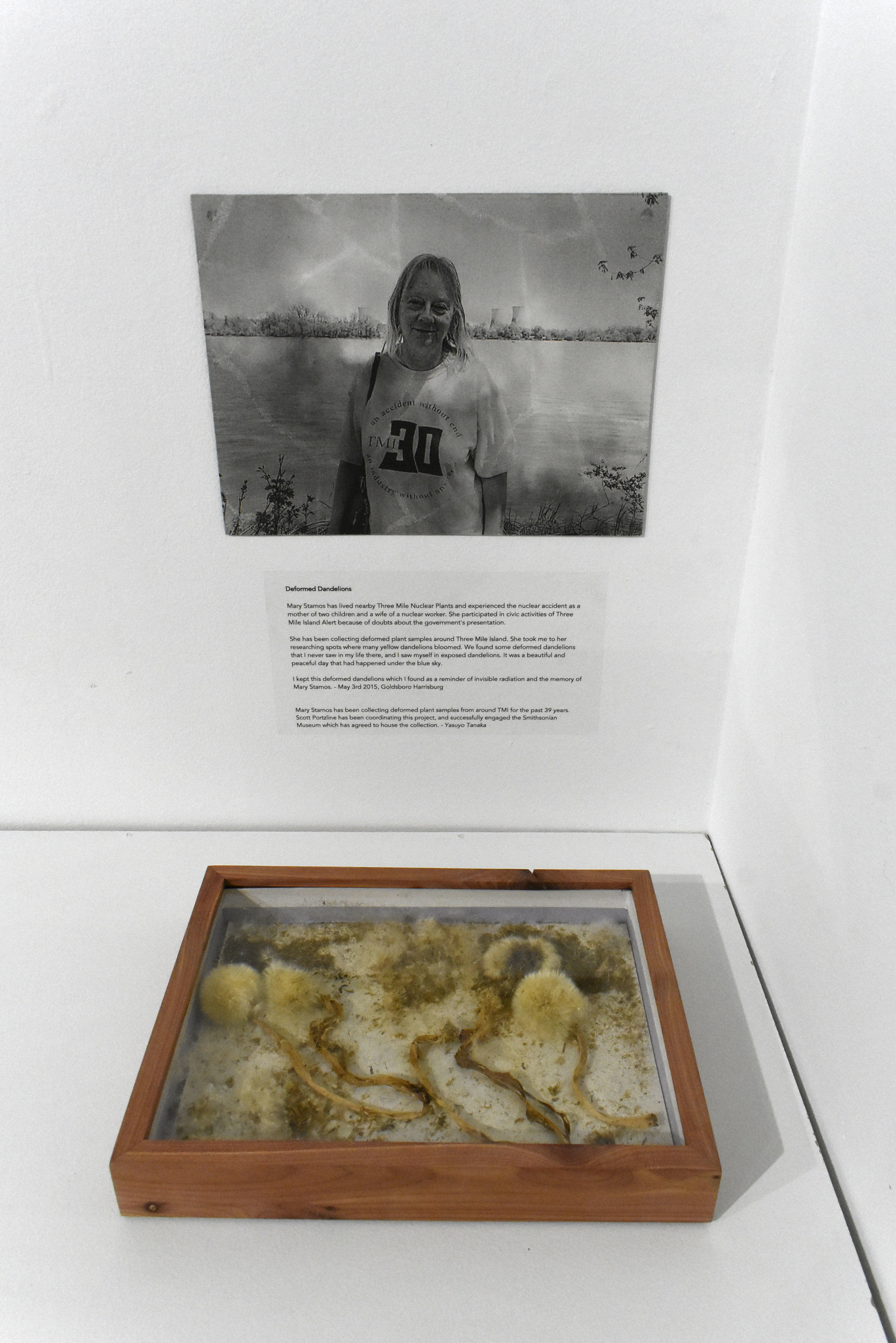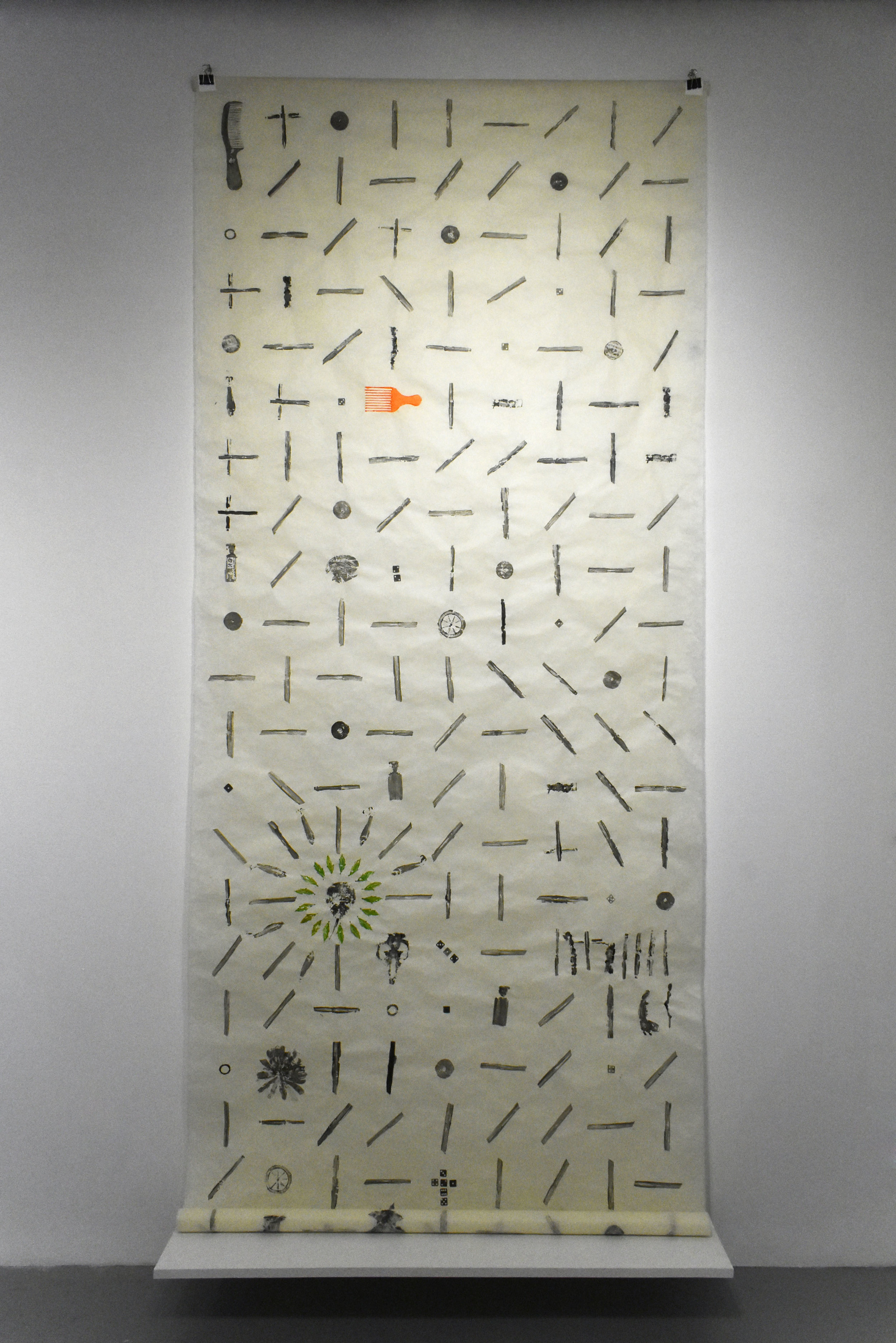In commemoration of the 40 Year Anniversary of Three Mile Island
March 7 - April 13, 2019
EVENTS
Thurs. March 7, 6-8PM: Opening + Curator walk-through
Sat. March 9, 2-4PM: Svasti Prayer and Meditation for Peace
Tues. March 12, 7PM: FILM SCREENING REGRET (dir.Tetsuhei Ikumaki). Disaster and Self-Reform + Discussion with Yasuyo Tanaka and Skype-in with Ryoko Hashizume.
Sun. March 17, 2PM: MELTDOWN a series of Experimental Japanese Films
Sat. March 30, 2PM: FILM SCREENING We are the Guinea Pigs Dir. Joan Harvey
Sat. March 30, 4PM: A REPORT BACK from THREE MILE ISLAND 40-Year Anniversary with Hiroko Aihara, Kyoko Sato and Yasuyo Tanaka
Sat. April 6, 2-4PM: BEYOND TRAUMA, MY CRY FOR OKINAWA - Discussion with Ms. Teiko Yonaha-Tursi and Hideko Otake
Tues. April 9, 7PM: FILM SCREENING EXPOSURE TO RADIATION POST-X Years followed by a discussion
Thurs. April 11, 7PM: FILM SCREENING EXPOSURE TO RADIATION POST-X Years 2 followed by a discussion
Sat. April 13, 2PM: CLOSING RECEPTION with Mary Stamos,Member of TMI Alert, and Dr. Heidi Hutner from Sustainability Studies Program, English, Women’s and Gender Studies at Stonybrook Univ.
This year 2019 is the 40th anniversary of the Three Mile Island nuclear accident. It was the worst nuclear disaster in the history of the United States. This accident on March 28, 1979 triggered the nuclear abolition movement. On June 12, 1982, one million people demonstrated in New York City's Central Park against nuclear weapons and for an end to the Cold War. It became the largest anti-nuclear protest and political demonstration in U.S. history.
The Three Mile Island nuclear plant will shut down in 2019. The Indian Point nuclear power plant closest to New York City, could be shut down by 2021. Although the times have been changing and shifting to natural energy, we face new problems of nuclear waste disposal and storage. There is also high radiation dose in New York, invisible radiation damage is not over yet.
Through the anniversary of nuclear accident at Three Mile Island and Fukushima, the exhibition If the wind blows hopes to learns from past disasters, to think about the current environmental problems, and to discuss what we can do for the future. One of the purpose is to connect for the next action with this as a foothold.
All disasters change human values and consciousness. It purpose to create opportunities for people to meet and learn from each other, and to blow the wind of change in ourselves and our society.
Heiwa Peace & Reconciliation Foundation of New York Ltd


